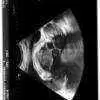-
Welcome to Celiac.com!
You have found your celiac tribe! Join us and ask questions in our forum, share your story, and connect with others.
-
Celiac.com Sponsor (A1):
Celiac.com Sponsor (A1-M):
-
Get Celiac.com Updates:Support Our Content
What To Eat To 'fill Up'
-
Get Celiac.com Updates:Support Celiac.com:
-
Celiac.com Sponsor (A17):
Celiac.com Sponsor (A17):
Celiac.com Sponsors (A17-M):
-
Recent Activity
-
- Scott Adams replied to SilkieFairy's topic in Celiac Disease Pre-Diagnosis, Testing & Symptoms2
IBS-D vs Celiac
What you’re describing really does not read like typical IBS-D. The dramatic, rapid normalization of stool frequency and form after removing wheat, along with improved tolerance of legumes and plant foods, is a classic pattern seen in gluten-driven disease rather than functional IBS. IBS usually worsens with fiber and beans, not improves. The fact that y... -
- Scott Adams replied to Amy Barnett's topic in Gluten-Free Foods, Products, Shopping & Medications1
Question
Here are some results from a search: Top Liquid Multivitamin Picks for Celiac Needs MaryRuth's Liquid Morning Multivitamin Essentials+ – Excellent daily choice with a broad vitamin/mineral profile, easy to absorb, gluten-free, vegan, and great overall value. MaryRuth's Liquid Morning Multivitamin – Classic, well-reviewed gluten-free liquid mul... -
- Scott Adams commented on Scott Adams's article in Multiple Sclerosis and Celiac Disease2
Gluten-Free Diet Linked to Reduced Inflammation and Improved Outcomes in Multiple Sclerosis (+Video)
Better to know late than never, and it is too bad they did not test you for it earlier!- autoimmune disease
- celiac disease
- (and 7 more)
-
- catnapt replied to catnapt's topic in Celiac Disease Pre-Diagnosis, Testing & Symptoms8
how much gluten do I need to eat before blood tests?
oh that's interesting... it's hard to say for sure but it has *seemed* like oats might be causing me some vague issues in the past few months. It's odd that I never really connect specific symptoms to foods, it's more of an all over feeling of unwellness after eating them. If it happens a few times after eating the same foods- I cut back...
-




Recommended Posts
Archived
This topic is now archived and is closed to further replies.